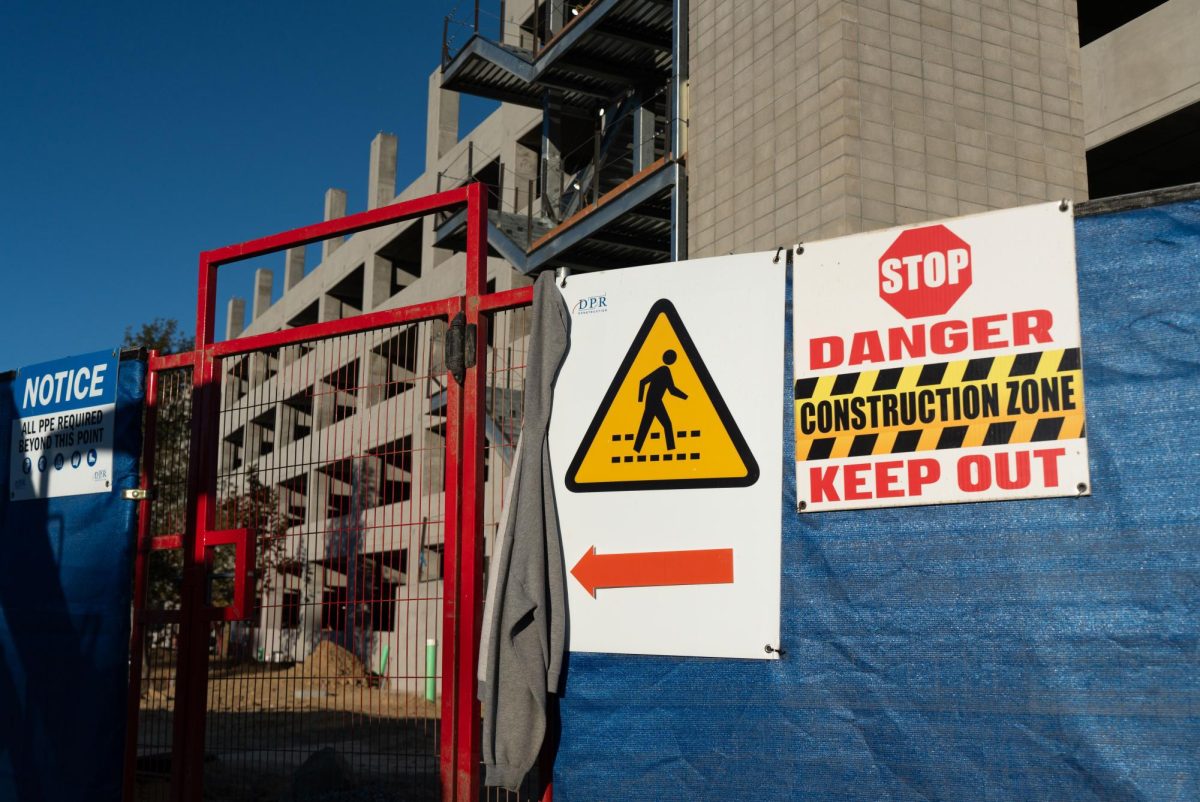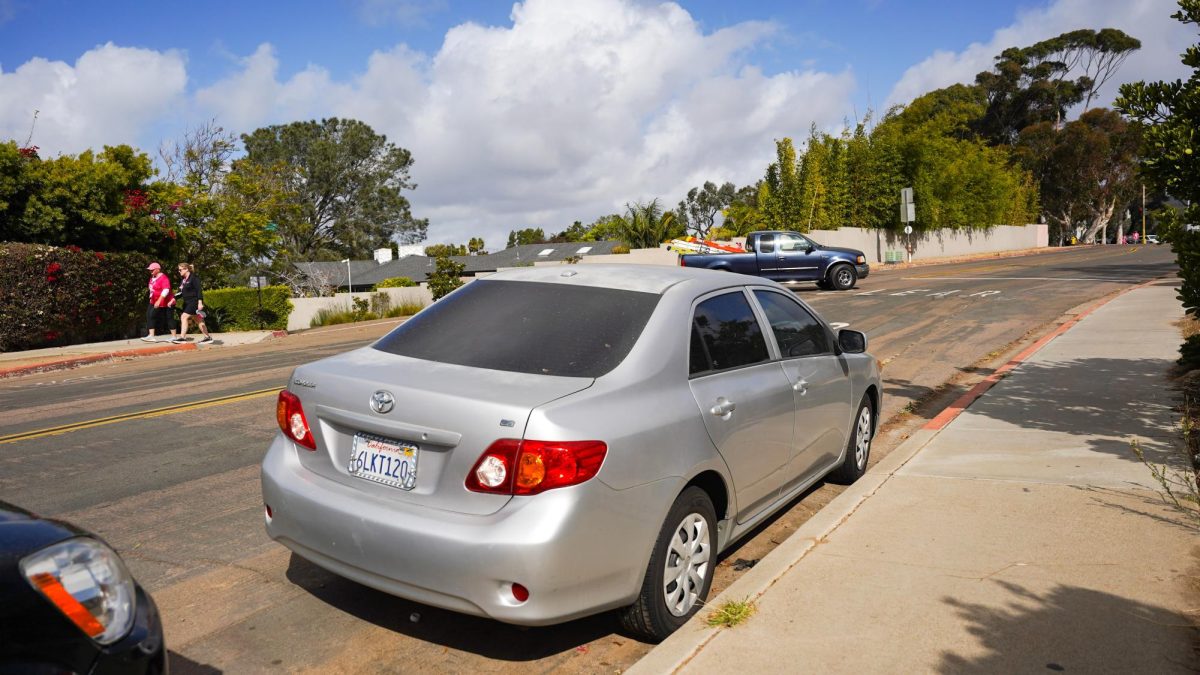A.S. Council approved a resolution on Feb. 16 to allow smoking only in designated parking lots. The resolution was a response to a recent student survey that indicated interest in limiting smoking on campus. A second proposed resolution aims for UCSD to transition to a tobacco-free campus in the next several years.
The designated parking lots include any lots that are at least 25 feet away from doors and windows. The new policy identifies 50 campus parking lots as designated smoking areas, though most lots meet the criteria.
According to Assistant Student Affairs Officer for Student Health Services Shanna Dayan, most students who are in favor of changing the policy only support moving smoking to parking lots and not the transition to a smoke-free campus.
According to Marshall College senior Sarah Raifsnider, who is a programming intern at the Office of Student Wellness, the National College Health Assessment found that most students were interested in seeing a new smoking policy on campus.
The assessment was distributed to 505 randomly selected UCSD students in Spring Quarter 2010 by the American College Health Association.
Results showed that 91 percent were neutral to the allowance of designated smoking areas in parking lots and 67 percent strongly supported the proposed change.
“There has also been an increase of complaints to the Student Health Services from students, alumni and staff about the smoking issue on our campus,” Raifsnider said.
Raifsnider and Dayan are obtaining support from student organizations to change the current policy, as well as pushing for the tobacco-free campus transition. They have contacted over 60 student organizations and received positive responses from 10 student groups.
“We are presenting Chancellor Marye Anne Fox with signed resolutions of student support for one or both of these resolutions,” Raifsnider said.
Dayan met with Chancellor Fox during Fall Quarter 2010 to see what it would take to change the current smoking policy. Fox according to Dayan, said she will only change the policy given a high level of student support.
Dayan said Fox will accept a list of student organizations in favor of the resolutions as an indication of student support. Raifsnider’s and Dayan’s current efforts are to collect resolutions to show that students are interested in a policy change.
Dayan said the 10 student groups, not including A.S. Council, amount to over 3,700 students in support of one or both of the resolutions.
A majority of the support is for the first resolution. Roosevelt Institute, Human and Earth Rights Organization, Sixth College Council and the Baseball Club are among the student groups in favor.
Both Raifsnider and Dayan are members of the Campuses Organized and United for Good Health advisory board that examines smoking and tobacco policies at California universities.
If Fox determines there is sufficient support for the changes, she will present the issue to the vice chancellors to assess the feasibility of the change, Raifsnider said.
“There isn’t a committee specifically to discuss this issue on campus,” Associate Vice Chancellor of Student Wellness Karen Calfas said. “But as the AVC of Student Wellness, I am very much in support of moving in this direction, as it would contribute to the wellness of our entire UC San Diego community.”
According to Calfas, educating students and collecting support is only one part of the process, as a change in policy must also consider needs of faculty, staff and visitors. Calfas is currently gathering additional information on the issue to submit to the Chancellor for her consideration.
“We cannot predict when or if a change would happen,” Raifsnider said. “We simply want to show that students are interested in a stronger smoking policy on campus.”
The policy was last changed in Spring Quarter 2009 from 20 to 25 feet away from buildings to qualify the campus for a L.E.E.D. green building certification. The policy change went mostly unnoticed, Dayan said.
Last year, the Health Sciences campus in East Campus and Hillcrest, conducted a smoke-free trial run with designated smoking areas, which was put into effect this year.
“Thus far, there seems to be a lot of positive feedback from UCSD Health Sciences becoming smoke-free,” Dayan said.
Calfas worked on the project with physiology professor John West and behavioral epidemiologist John Pierce from the School of Medicine, Dayan explained.
According to research based on last year’s survey, students perceive that as many as 12 to 13 percent of students smoke, when in fact only 4 percent are considered regular smokers (consuming one to 10 cigarettes daily), while 14 percent report smoking primarily in social situations, Raifsnider added.
Warren College senior Alvin Choe is against the proposed policy changes because it unfairly targets a minority group rather than resolving a health or littering issue.
”Smoking is a legal activity,” Choe said. “I am for what is good, but not at the cost of abusing our right to vote to bully people around to get our way.”
The proposals take other populations on campus into consideration, particularly people who are affected by secondhand smoke — such as asthmatics, cancer survivors and pregnant women. Raifsnider said these people would benefit most from the change.
“Over 450 colleges across the United States have adopted smoke-free policies, some are even moving towards becoming tobacco-free,” Raifsnider said.
UC San Francisco, University of Oregon and University of Michigan are among the universities that exercise tobacco-free policies.
If the policy changes are put in place, UCSD will have the second-most stringent smoking policy in the UC system, behind UCSF. All other UC campuses have policies ranging from 20 to 30 feet from buildings.
Dayan and Raifsnider aim for a policy change by next year. If the policy is changed, they plan to work during the summer to plan an educational campaign. Also, there will be signs to indicate smoking areas. Dayan said she does not know how it will be enforced.
A major consideration for Dayan and Raifsnider in the proposed change is its environmental impact.
“We believe that UCSD is falling behind as a premiere research university and leader in the green movement by not updating this policy,” Raifsnider and Dayan said.







